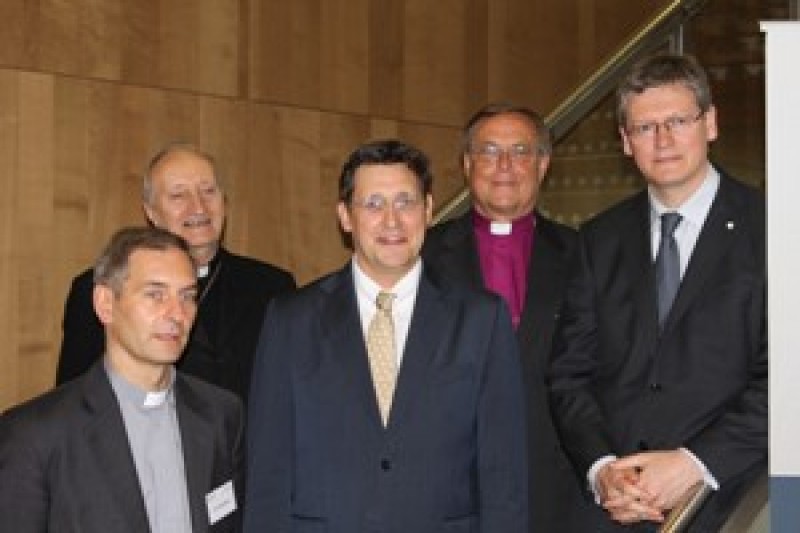Press release No: 10/35
Dialogue Seminar of the EU and the Churches in Europe on “Combating Poverty and Social Exclusion in the Framework of the EU 2020 Strategy”
In June 2010, the European Council set the target of taking 20 million people out of poverty by 2020. What is necessary to meet this ambitious target? - In a dialogue seminar with the European Commission, the Churches in Europe expressed their commitment to intensify their cooperation with the European Union to combat poverty and social exclusion. They expressed their interest in actively participating in the work of the European Platform against poverty which is being set up by the EU.
László Andor, EU Commissioner for Employment, Social Affairs and Inclusion, welcomed the seminar as an occasion for exchange with the Churches. He stressed the importance of the Churches as partners in order to achieve the goal of reducing poverty and social exclusion in the EU.
“As Churches we are ready to share our expertise and practical experience in combating poverty and social exclusion “stated Archbishop em. Jukka Paarma (Evangelical Lutheran Church of Finland). “We hope, for instance, to be involved in the work of the European Platform against poverty. We call for a stronger political commitment to combat poverty, enabling all people to live in dignity.”
Underlining the global dimension of poverty, Bishop Merisi, President of Caritas Italy, called on Europe to also promote a globalisation of solidarity and of the related values of equity, justice and freedom: “We are aware of the fact that the respective roles of the Churches and the Institutions are different, but we also think that a sounder cooperation between them should develop, which should also include citizens and social bodies”.
Churches and Church-based organisations are major social actors in the EU. With their longstanding record of combating poverty, they have an intimate knowledge of peoples’ actual suffering and have developed successful initiatives and tools to address it. Organised at local, national, European and global levels, Churches are strong partners for the European Commission to raise awareness and meet the targets for significant poverty reduction.
Europeans are currently experiencing the social impact of the economic crisis and unemployment and poverty are on the rise. Being on the frontline, Church organisations recall the alarming situation of families, children and the elderly – all of whom are particularly vulnerable groups. At the Dialogue Seminar, several delegates took the floor with initiatives, explaining how they are trying to break through the poverty circle. In the Netherlands, where 8% of people live in poverty, Kerk in Actie is helping to promote the human rights of poor people. An ‘Observatory of poverty’ was set up in Bosnia-Herzegovina led by the local Caritas. 18% of Portuguese live in poverty, one of the highest poverty rates in Europe. The faith-based organisation Entrajuda aims at creating a solidarity chain between donors and beneficiaries, mobilizing hundreds of volunteers to support the fight against poverty.
Dialogue Seminars have a longstanding tradition in the cooperation between the European Commission and the Churches in Europe. Since their beginning in the early 1990s, they have proved to be a significant discussion forum for matters of common concern. They represent an important element of the open, transparent and regular dialogue between the European Commission and the Churches in Europe.
*****
The Conference of European Churches (CEC) is a fellowship of some 120 Orthodox, Protestant, Anglican and Old Catholic Churches from all countries of Europe, plus 40 associated organisations. CEC was founded in 1959. It has offices in Geneva, Brussels and Strasbourg.
The Church and Society Commission of CEC links member churches and associated organisations of CEC with the European Union’s institutions, the Council of Europe, the OSCE, NATO and the UN (on European matters). Its task is to help the churches study church and society questions from a theological and social-ethical perspective, especially those with a European dimension, and to represent common positions of the member churches in their relations with political institutions working in Europe.
For more information:
Church and Society Commission of CEC
Phone +32 2 230 17 32
Fax +32 2 231 14 13
e-mail: csc@cec-kek.be
